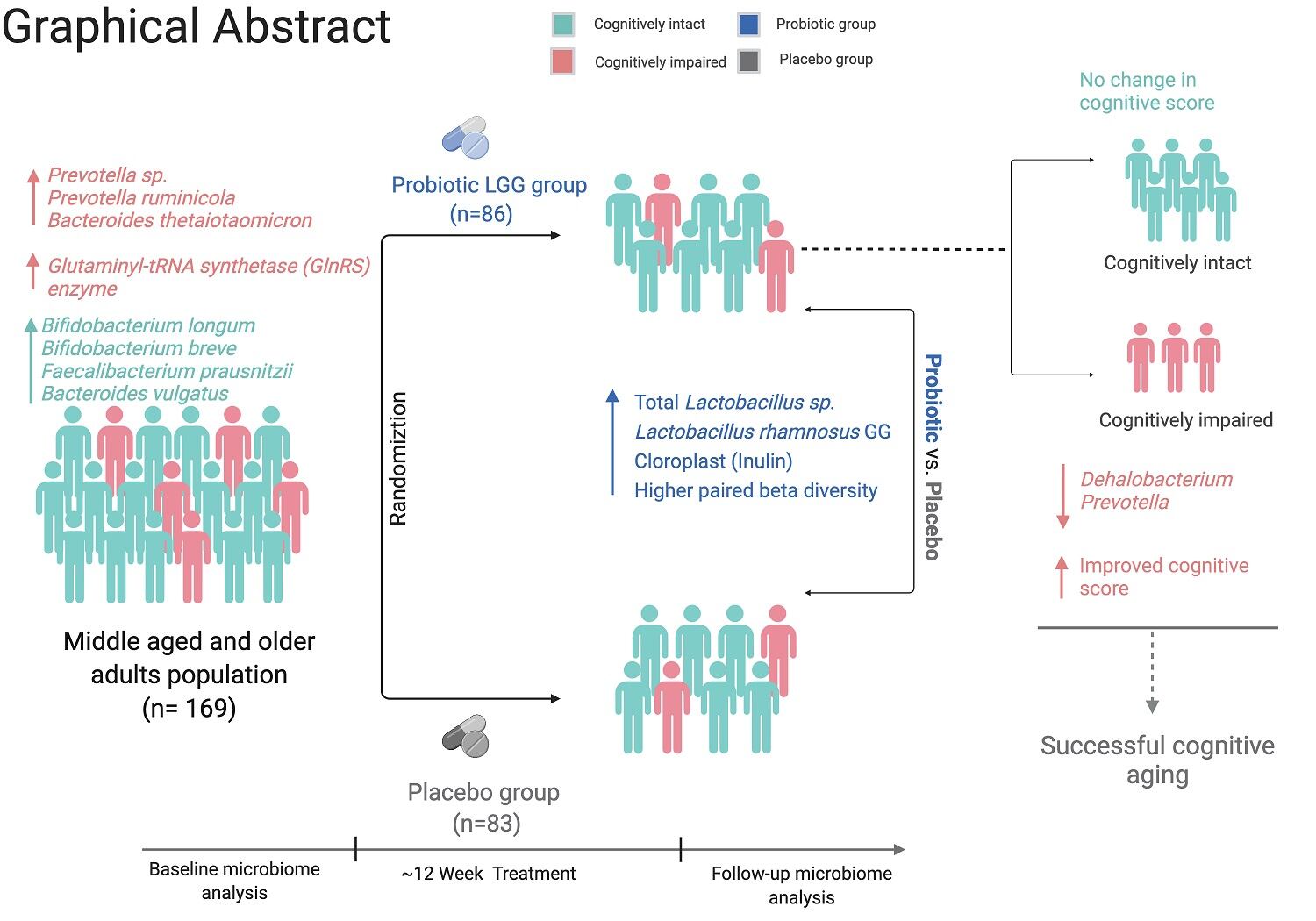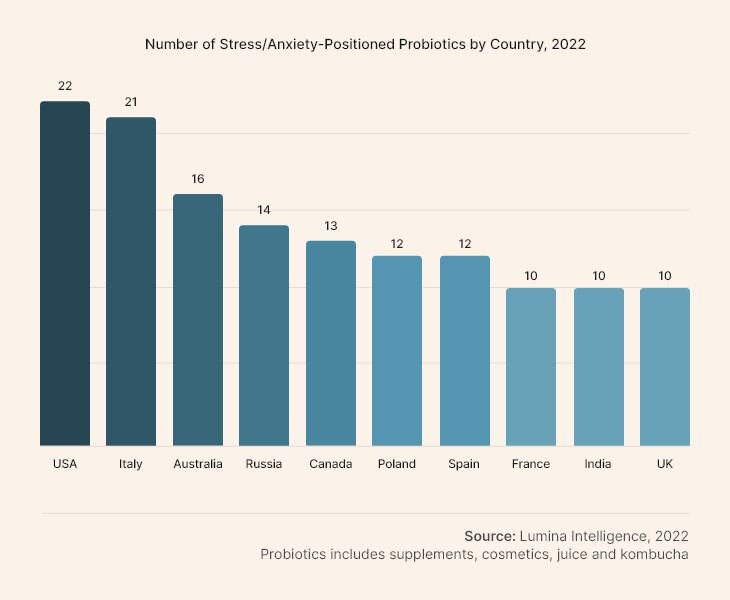Data from 169 people with or without MCI and aged between 52 and 75 indicated that microbes in the genus Prevotella were present in a higher relative abundance in people with MCI compared to people with no cognitive impairment.
Daily supplementation with Lacticaseibacillus rhamnosus GG (formerly known as Lactobacillus rhamnosus GG) for three months led to reductions in the abundance of genus Prevotella and improved cognitive scores.
The data was presented at NUTRITION 2023, the annual meeting of the American Society for Nutrition, in Boston.
“The implication of this finding is quite exciting, as it means that modifying the gut microbiome through probiotics could potentially be a strategy to improve cognitive performance, particularly in individuals with mild cognitive impairment,” said Mashael Aljumaah, a microbiology doctoral candidate at the University of North Carolina at Chapel Hill and North Carolina State University.
“This adds a new layer to our understanding of the microbiome brain-gut connection and opens up new avenues for combating cognitive decline associated with aging.”
Microbiota-gut-brain axis
The study adds to the ever-growing body of science supporting the role of the microbiota-gut-brain axis for cognitive function. The microbiota-gut-brain axis is a bidirectional interaction between the GI tract and the nervous system and implicates the ability of specific strains to produce key neurotransmitters like GABA (Gamma Aminobutyric Acid), serotonin and dopamine.
Consumer awareness of the axis is growing, with a 2021 survey by FMCG Gurus revealing that 45% of consumers associated probiotics with cognitive health.
Probiotic products on the market are already making stress or anxiety-related claims, with data from Lumina showing that the US is the leading market for such products, followed by Italy and then Australia.
Study details
The randomized clinical trial included 169 community-dwelling middle-aged and older people, aged between 52 and 75. The volunteers were randomly assigned to receive either probiotic (Culturelle, with 10 billion CFUs LGG plus 200 mg of inulin) or placebo for three months.
Scientists from North Carolina State University, King Saud University (Saudi Arabia), and Kent State University found that supplementation with LGG led to improvements in cognitive performance in middle-aged and older adults with cognitive impairment.
Dividing the participants based on cognitive status (intact or impaired cognition) and microbiome analysis performed at the start of the study and post supplementation revealed that there was also a correlation between specific members of the gut microbiota with cognitive performance in these people.
Specifically, Prevotella ruminicola, Bacteroides thetaiotaomicron, and Bacteroides xylanisolvens were identified as taxa that correlated with mild cognitive impairment (MCI). Further, LGG supplementation was associated with a decrease in the relative abundance of the genus Prevotella and Dehalobacterium and correlated with an improved cognitive score.
“By identifying specific shifts in the gut microbiome associated with mild cognitive impairment, we're exploring a new frontier in preventive strategies in cognitive health,” said Aljumaah. “If these findings are replicated in future studies, it suggests the feasibility of using gut microbiome-targeted strategies as a novel approach to support cognitive health.”
Aljumaah confirmed to NutraIngredients-USA that the researchers are planning a follow-up trial that is still in the IRB approval process.
"Currently we are doing a follow-up study, aiming to understand specific mechanisms on how the microbiome could potentially contribute to cognitive decline, with a focus on the genus Prevotella," she told us.
The study was funded by i-Health, Inc., a division of Royal DSM, makers of the Culturelle brand of probiotic supplements used in the study.
Source: NUTRITION 2023
Session: Microbiome
Monday, July 24, 2023
(PTFS08-04-23) The Gut Microbiome, Mild Cognitive Impairment, and Probiotics: A Randomized Clinical Trial in Middle-Aged and Older Adults
Presenting Author: M.R. Aljumaah




